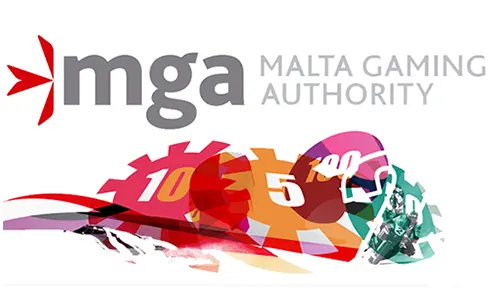 In 2022, the number of operators applying for a license from the Malta Gaming Authority (MGA) declined by 75% compared to 2018, when the regulator was at its peak. In 2021, the jurisdiction was placed on the Financial Action Task Force grey list, and new license registrations dropped by 50% compared to the previous year.
In 2022, the number of operators applying for a license from the Malta Gaming Authority (MGA) declined by 75% compared to 2018, when the regulator was at its peak. In 2021, the jurisdiction was placed on the Financial Action Task Force grey list, and new license registrations dropped by 50% compared to the previous year.
In an effort to regain its strong position on the iGaming market, the Malta Gaming Authority proposed a new law under which prosecuting Maltese gaming companies internationally would be more difficult. The MGA is poised to adopt a more tolerant approach to its licensees who fail to comply with the standards set by the regulator.
The number of license registrations speaks volumes about the popularity of the jurisdictions. It is not a secret that the online gambling industry heavily contributes to Malta’s gross domestic product. According to statistics, the iGaming industry accounted for 12% of the country’s gross domestic product by 2022.
According to research conducted by media agency The Shift, the Malta Gaming Authority issued 50 licenses in 2018. Since then, the gambling watchdog has experienced a sharp decline in the number of new license registrations. In 2021, the year when Malta was greylisted, the number of new gaming licenses issued hit the bottom. As a result, the regulator suspended fewer licenses compared to previous years.
The Proposed Amendments to the Maltese Gambling Act Causes Controversy
Austrian and German lawyers recently sent a letter to the European Commission, criticizing the recently introduced amendments to Malta’s Gambling Act. The lawyers represent clients who took legal action against Malta-licensed online gaming companies that allegedly offered their services illegally in Austria and Germany.
On June 12, the Maltese Parliament approved bill No. 55, also known as the Gaming Amendment Act. The legislation seeks to introduce amendments to the current Gaming Act and encourage more operators to apply for a Maltese gaming license. If the bill becomes law, MGA licensees will be protected from international prosecution.
In response to the proposed bill, the two lawyers argued that the legislation is against European rules and violates the fundamental rights of all EU residents. They explained that the Maltese gambling companies, against which legal actions have been taken, did not comply with the law as they offered gambling services without being licensed to operate in Germany and Austria.
The MGA, however, stated that German and Austrian law agencies were promoting the option for players to sue Maltese gaming companies in order to recover their losses. The MGA described this advertising as “aggressive” and “damaging”. The regulator added that the possibility of suing Maltese gambling companies internationally allows plaintiffs to recover gambling losses, leaving them with the wrong impression that they could play without any risk.
 Last Thursday, Nevada Governor Joe Lombardo signed a bill under which $380 million in taxpayer money would fund a proposed $1.5-billion baseball stadium. The move aims to attract the Oakland Athletics to the Las Vegas Strip. The proposal now pends approval from Major League Baseball in order to be finalized.
Last Thursday, Nevada Governor Joe Lombardo signed a bill under which $380 million in taxpayer money would fund a proposed $1.5-billion baseball stadium. The move aims to attract the Oakland Athletics to the Las Vegas Strip. The proposal now pends approval from Major League Baseball in order to be finalized.  Last Thursday, the Ohio Senate approved an omnibus budget bill, which includes provisions aiming to double the state’s sports betting tax to 20% in the first year of a sportsbook’s operations. The Senate voted in favor of the legislation without discussing the tax hike. However, the dramatic tax increase is likely to spark a debate among House members.
Last Thursday, the Ohio Senate approved an omnibus budget bill, which includes provisions aiming to double the state’s sports betting tax to 20% in the first year of a sportsbook’s operations. The Senate voted in favor of the legislation without discussing the tax hike. However, the dramatic tax increase is likely to spark a debate among House members. 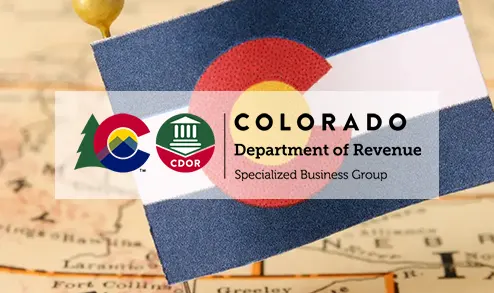 On Thursday, the Colorado Limited Gaming Control Commission postponed the decision to regulate exchange wagering in the state. Members of the Commission were concerned that the new form of online sports betting would allow those who own exchange platforms to avoid paying taxes. Of all four members of the Commission, three voted against taking action on a proposal seeking to regulate exchange wagering. Only one commissioner supported the idea of regulating betting exchanges.
On Thursday, the Colorado Limited Gaming Control Commission postponed the decision to regulate exchange wagering in the state. Members of the Commission were concerned that the new form of online sports betting would allow those who own exchange platforms to avoid paying taxes. Of all four members of the Commission, three voted against taking action on a proposal seeking to regulate exchange wagering. Only one commissioner supported the idea of regulating betting exchanges.  This Monday, the Planning Board held a public hearing on a project seeking to expand the Lebanon Poker Room into a charitable casino with 111 electronic gaming machines and 13 gaming tables. Under the proposal, the Lebanon Poker Room will also include a 41-seat restaurant and bar. The charitable casino would use the former Gerrish Honda building, which is currently vacant.
This Monday, the Planning Board held a public hearing on a project seeking to expand the Lebanon Poker Room into a charitable casino with 111 electronic gaming machines and 13 gaming tables. Under the proposal, the Lebanon Poker Room will also include a 41-seat restaurant and bar. The charitable casino would use the former Gerrish Honda building, which is currently vacant. 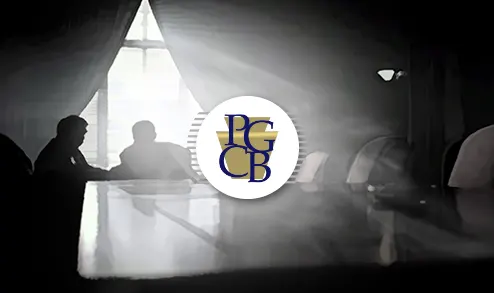 The Pennsylvania Gaming Control Board may become the target of an investigation for allegedly holding secret meetings with casino lobbyists. Two Pennsylvania lawmakers, State Sen. Gene Yaw, and State Rep. Jared Solomon, have requested the probe after a story published by the media agency Spotlight PA revealed that top officials met with casino lobbyists and did not disclose details about the meeting on public logs as required by the regulatory agency’s ethics rules.
The Pennsylvania Gaming Control Board may become the target of an investigation for allegedly holding secret meetings with casino lobbyists. Two Pennsylvania lawmakers, State Sen. Gene Yaw, and State Rep. Jared Solomon, have requested the probe after a story published by the media agency Spotlight PA revealed that top officials met with casino lobbyists and did not disclose details about the meeting on public logs as required by the regulatory agency’s ethics rules.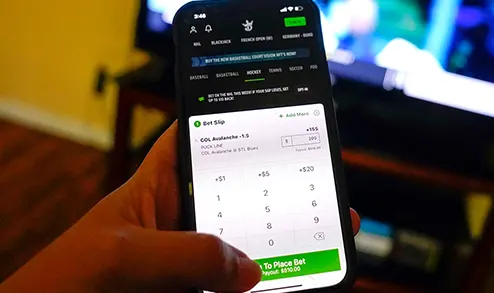 Yesterday, Vermont’s Governor Phil Scott put his signature on House Bill 127, legalizing online sports betting in the state. In a statement, Scott said he had proposed the legalization of online sports betting several years ago, but lawmakers could not reach an agreement. He did not hide his satisfaction with the fact that online sports betting is finally legal in Vermont. Scott also noted that many Vermonters wager on sports, and legalizing this industry would not only boost the state economy but also protect underage individuals and vulnerable people.
Yesterday, Vermont’s Governor Phil Scott put his signature on House Bill 127, legalizing online sports betting in the state. In a statement, Scott said he had proposed the legalization of online sports betting several years ago, but lawmakers could not reach an agreement. He did not hide his satisfaction with the fact that online sports betting is finally legal in Vermont. Scott also noted that many Vermonters wager on sports, and legalizing this industry would not only boost the state economy but also protect underage individuals and vulnerable people. Naskila Casino, located in East Texas, has upped the ante in the fight for new customers. The gambling venue has started advertising its products on billboards, hoping to attract the attention of potential players. The company has come up with the billboard advertising idea after Texas failed to approve a bill seeking to legalize casino gambling and online sports betting in the Lone Star State.
Naskila Casino, located in East Texas, has upped the ante in the fight for new customers. The gambling venue has started advertising its products on billboards, hoping to attract the attention of potential players. The company has come up with the billboard advertising idea after Texas failed to approve a bill seeking to legalize casino gambling and online sports betting in the Lone Star State.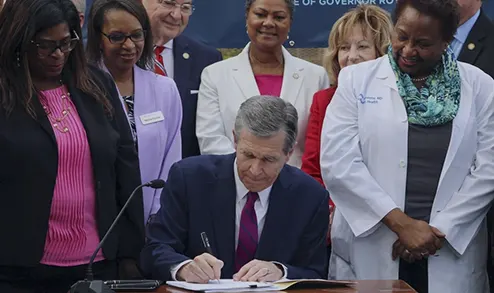 North Carolina’s Governor Roy Cooper is expected to sign a sports betting bill into law today at Spectrum Center in Charlotte. Mobile sports betting could go live as of January 8 – the day when the College Football Playoff National Championship Game will take place in Houston. If regulators fail to turn the bill into practice by that date, mobile sports betting must launch within 12 months of the bill becoming law.
North Carolina’s Governor Roy Cooper is expected to sign a sports betting bill into law today at Spectrum Center in Charlotte. Mobile sports betting could go live as of January 8 – the day when the College Football Playoff National Championship Game will take place in Houston. If regulators fail to turn the bill into practice by that date, mobile sports betting must launch within 12 months of the bill becoming law.  This Monday, representatives of Caesars Sportsbook and the Massasoit Greyhound Association informed the Massachusetts Gaming Commission that the Raynham Park land-based sportsbook is to open before the beginning of the National Football League’s regular season, which is scheduled to kick off on September 7. Raynham Park is now pending approval from the state regulator to run retail and online sports betting platforms.
This Monday, representatives of Caesars Sportsbook and the Massasoit Greyhound Association informed the Massachusetts Gaming Commission that the Raynham Park land-based sportsbook is to open before the beginning of the National Football League’s regular season, which is scheduled to kick off on September 7. Raynham Park is now pending approval from the state regulator to run retail and online sports betting platforms.